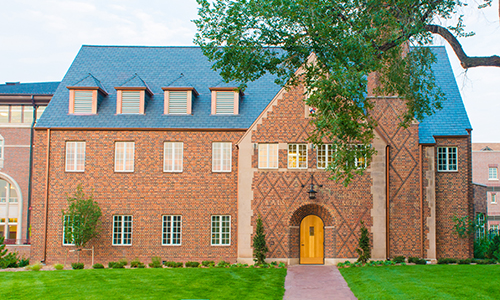December 20, 2013
IAALS is happy to welcome Colorado Court of Appeals Chief Judge Janice B. Davidson (Ret.) as she takes on her role as Senior Advisor at IAALS. Chief Judge Davidson will be involved with all of IAALS’ initiatives to some extent, but will focus her time primarily on the Quality Judges Initiative, beginning in January 2014.
December 18, 2013
In August 2014, all of Tennessee's appellate judges will appear on the ballot, and voters will decide whether they should be retained in office. By that time, the Judicial Performance Evaluation Commission will have provided information to the public about these judges' performance on the bench. Last month, the commission announced that it may take the unprecedented step of recommending against the retention of three intermediate appellate court judges.

Expert Opinion
December 16, 2013
A recent survey asked respondents for their opinions on both court and non-court proceedings for divorcing couples. Overall, only 51 percent of those surveyed indicated they would consider non-court alternatives and only one-fourth believed that non-court proceedings protect parties’ rights. These findings suggest a lack of understanding about out-of-court solutions for families that are often less stressful and less expensive than lengthy in-court proceedings.
December 12, 2013
We are excited to announce that two new law schools have joined the Educating Tomorrow’s Lawyers Consortium: Loyola University Chicago and Georgia State University. Members of the Consortium demonstrate significant institutional commitment to reforming legal education through innovation, which can include Carnegie-inspired teaching methods, student-centered instruction, and tackling the core competencies that new attorneys need to practice.

Expert Opinion
December 5, 2013
Jurors have a unique perspective on our legal system. Recently, I had the opportunity to speak with someone who served on a jury this fall in California Superior Court. He had some suggestions as to how things could have been handled differently. We at IAALS hope judges and attorneys are listening. These techniques are already in use in many courtrooms across the country—but not all.
December 4, 2013
We previously shared Judge Paul W. Grimm’s standard Discovery Order, which we recommend to state and federal court judges alike as a model and inspiration to manage the pretrial discovery process. Judge Grimm has made some revisions to his Order, including expanding the definition of proportionality and making reference to the possible use of Technology Assisted Review as a means to keep costs down. Download his new Order here.
December 4, 2013
The Pittsburgh Tribune-Review recently published an article about proposed legislation to change the Pennsylvania judicial selection process. IAALS Executive Director Rebecca Love Kourlis was interviewed in the article about the proposed legislation and the benefits of merit selection. She noted that the Pennsylvania proposal contains the front-end nominating commission process endorsed by IAALS as the O'Connor Judicial Selection Plan.
December 3, 2013
The U.S. Senate voted 52 to 48 to change its rules regarding use of the filibuster to block votes on nominees to the lower federal courts and executive branch positions. The immediate impact of this development will be to allow votes on three nominees to the U.S. Court of Appeals for the D.C. Circuit whose appointments Republicans have blocked. Writing for CNN.com, IAALS Board of Advisors member Russell Wheeler suggested that the three will be confirmed "but at a cost."
December 2, 2013
In October, we had a room full of people abuzz with talk about the present state of legal education and its future. These were educators and practitioners who are already working together to change legal education to meet the needs of the profession. So it's not a surprise that when we asked some of them three questions about legal education we got some very interesting answers. What are your answers? Tell us in the comments.
December 2, 2013
In a recent opinion dissenting from the denial of certiorari in an Alabama death penalty case, U.S. Supreme Court Justice Sonia Sotomayor questioned whether the pressures of partisan judicial elections influence judges' decisions in cases involving hot-button issues like capital punishment. Social scientists have examined the question before, and have come to similar conclusions.

Expert Opinion
November 26, 2013
At our 2nd Annual Educating Tomorrow's Lawyers Conference, we honored Bill Henderson with our Educating Tomorrow's Lawyers Award. Afterward, he delivered a keynote address (video here) focused on the significance of the role played by legal educators and the change that is coming. Talking about his own experience with a professor as a later-in-life college senior, he said that educators have the power to "flip the switch."
November 22, 2013
This year, we tried something new at the Educating Tomorrow's Lawyers Conference. During the reception, we opened the floor to four short presentations by participants who wanted to share an idea with our audience of legal educators, practitioners, and judges. It was, by all counts, a resounding success and we plan to expand it next year. They were a conference highlight and certainly worth six minutes.
